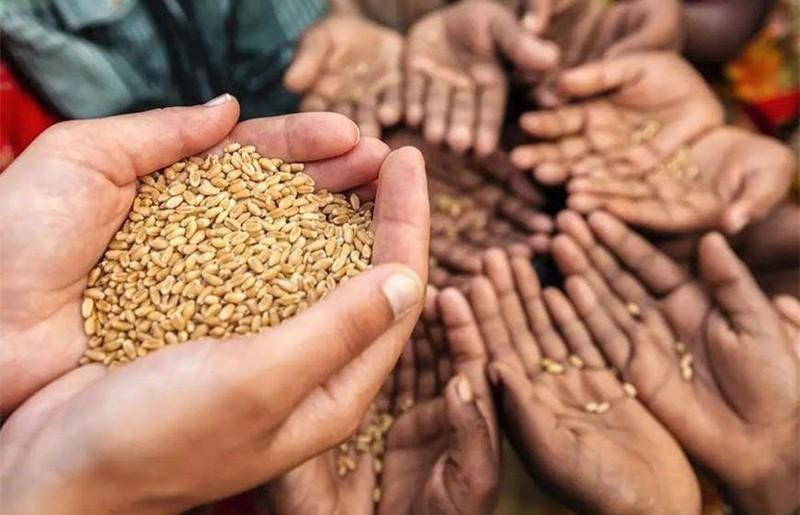Leaders of the Food and Agriculture Organisation of the UN (FAO), the International Monetary Fund (IMF), the World Bank (WB), the World Food Programme (WFP) and the World Trade Organisation (WTO) have issued a second joint statement calling for urgent action to tackle the global food security crisis.
Although leaders from the major international organisations affirmed that the food market is brighter than when the first joint statement was issued in April, the launching of the second joint statement proves that ensuring food security is an arduous and long journey.
UN Secretary-General Antonio Guterres affirmed said the world has enough food in 2022 but the current challenge is distribution. If the situation is not stable this year, the world will face the risk of food shortage in 2023.
German Chancellor Olaf Scholz said that food security remains a particularly urgent issue, while the group of the world's leading industrialised countries (G7) have committed to spend 5 billion USD towards this goal.
“There is no peace with hunger, and we cannot combat hunger without peace”.
Prime Minister of Spain Pedro Sanchez
According to statistics from the United Nations Children's Fund (UNICEF) and FAO, about 700-830 million people were affected by hunger in 2021, accounting for 9.8% of the world's population. This number was an increased of 150 million compared to 2019 and an increase of 46 million over 2020.
In order to alleviate the fear of food insecurity, many countries and international organisations have taken drastic actions. US President Joe Biden announced an additional 2.9 billion USD in assistance for the 6.9 billion USD package that the US government pledged this year to contribute to ensuring global food security.
The US leader expressed his hope that this assistance will help the most vulnerable groups in the world avoid hunger. French President Emmanuel Macron announced that Paris will finance a shipment of flour from Ukraine to Somalia which has been facing heavy poverty.
The WB is carrying out the 30 billion USD programme to respond to the food security crisis. The IMF proposed measures to reduce food shock among emergency lending instruments. The FAO provided a series of policy recommendations and a detailed soil nutrient map at the national level to increase the efficiency of fertiliser use in food production.
Meanwhile, Indonesia, the country with the largest population in Southeast Asia, has prepared a budget of 95 trillion rupiah (about 6.32 billion USD) to cope with the risk of food crisis in 2023.
The Indonesian Ministry of Finance emphasised that the huge budget package is used to ensure food security in the country and prevent any unexpected risks that may occur.
The Indonesian Ministry of Agriculture was assigned a task of using these funds to maintain stable production of priority food items and develop local food diversification towards enhancing added value and increasing the competitiveness and export of agricultural products.
Experts also stressed that amid conflicts, pandemic and extreme weather caused by climate change, measures to cope with the risk of food insecurity are urgently required to prevent vulnerable people from falling into poverty.
















